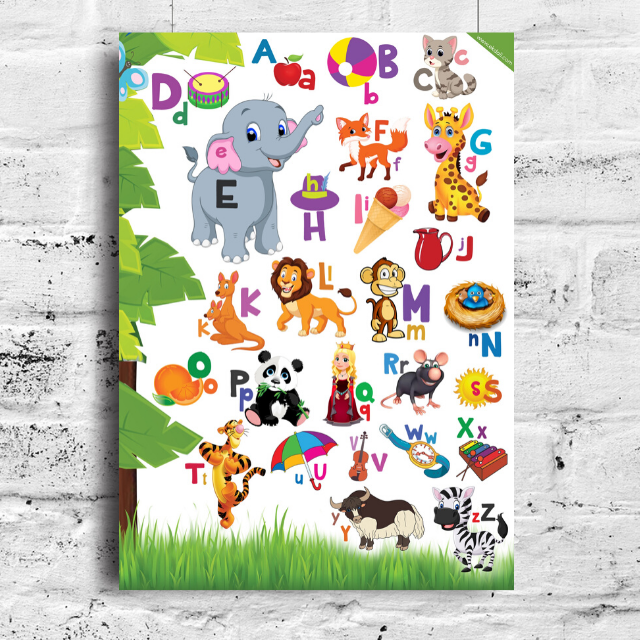Though it may appear straightforward, teaching youngsters to write letters may be a difficult undertaking.
Though it may appear straightforward, teaching youngsters to write letters may be a difficult undertaking. As alphabet knowledge is a crucial learning goal for young children, we will discuss various interesting and non-traditional approaches of teaching letters to children today.
Tips for teaching youngsters the alphabet letters
Here are a few things parents may do to help their children enjoy learning the alphabet.
Names can be used to teach letter recognition - Most children adore seeing their names printed or written. Parents can laminate all of the letters of the alphabet, make alphabet flashcards, and ask their child to identify letters in their name, surname, parent's or sibling's name, and so on. You could also connect magnets to these letter cards and use them as magnetic letters. As you add the names of vegetables, fruits, and so on, the youngster will eventually be able to use this simple, enjoyable game to grasp letter recognition.
Teach letter sounds in addition to letter recognition - As youngsters learn the sounds that each letter of the alphabet makes, they will notice that the letters' names do not correspond to how the letters are spoken. When kids learn how to combine sounds denoted by letters or sets of letters (such as sh or oo), they will find it simpler to read words, which will boost their confidence.
Making uppercase and lowercase letters out of sand or flour - Another enjoyable technique to teach youngsters letters is to have them practise writing in sand or flour. It will enhance the sensory experience of learning the alphabet. It will relieve the child of the strain of perfect handwriting and encourage him or her to practise different uppercase and lowercase letters.
Play 'I Spy' with the letters - Gamifying things is a terrific method for both parents and children to enjoy learning letters. You might ask the youngster to point out the alphabets they notice around them while travelling, such as on billboards, tickets, menus, and so on. Including letter sounds will make the game much more engaging for everyone.
Alphabet knowledge is important for youngsters because it influences their reading and writing abilities. You may begin by using worksheets from the Friday Funday Alphabet Series to help your child's letter recognition. It includes enjoyable games for youngsters to practise letter recognition, letter matching, and letter sounds.
As always, don't rush youngsters through this process; instead, celebrate small victories along the way and lavish them with praise and support.
-
 Posters, Flash Cards and Books are Great Conversation Starters
Posters, Flash Cards and Books are Great Conversation Starters -
 Our Posters and Flash Cards have reached over 300,000 kids
Our Posters and Flash Cards have reached over 300,000 kids -
 Same day shipping for orders before 1 PM. Next day shipping for orders post 1 PM
Same day shipping for orders before 1 PM. Next day shipping for orders post 1 PM -
 Write to us purchase@ekdali.com
Write to us purchase@ekdali.com




















